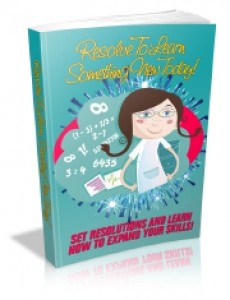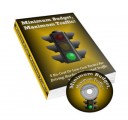 License Type: Master Resell Rights
License Type: Master Resell Rights  File Size: 851 KB
File Size: 851 KB File Type: ZIP
File Type: ZIP
 SKU: 3694
SKU: 3694  Shipping: Online Download
Shipping: Online Download
Ebook Sample Content Preview:
Many theorists centre on the distinction between intrinsic and extrinsic rewards for learning. An illustration of an intrinsic payoff is the pleasure it may give you to learn an instrument or the great feelings produced when you learn how to contain your anger.
An illustration of an extrinsic reward would be your youngster being given a dessert after they've completed their homework or you getting a degree in return for years of study. The common view is that for learning to be truly successful, the learner has to be intrinsically prompted, although it's clear that having external positive feedback is likewise bound to be helpful. You need things that will truly satisfy a learner to make them motivated.
You have to be truly “satisfied” if you're going to switch on your brain and, therefore, powered up to learn.
Occasionally external rewards may even work against you. For instance, it has been discovered that if you're trying to encourage youngsters to read, reinforcing them for the number of books they read might in fact be counter-productive. Evidently, if you do this they will read a higher number of books fast, but not enjoy, learn, or remember what they've read.
Even so, most of us are able to work out how to administer treats as rewards when we have done something we have set our mind to. Such payoffs may be going for a walk, a weekend get away, a meal out with our mate, or simple matters like a cup of coffee or a piece of chocolate (although for the effects of particular foods on your brain, don’t forget what you learned earlier!). However, remember this. If you come to depend upon external rewards, what Occurs when you stop receiving them? Do you go on or do you Crunch to a halt because you lack the inner drive?
- File Size:851 KB
- License: Master Resell Rights
- Category:Ebooks
- Tags:2010 Ebooks Master Resale Rights








